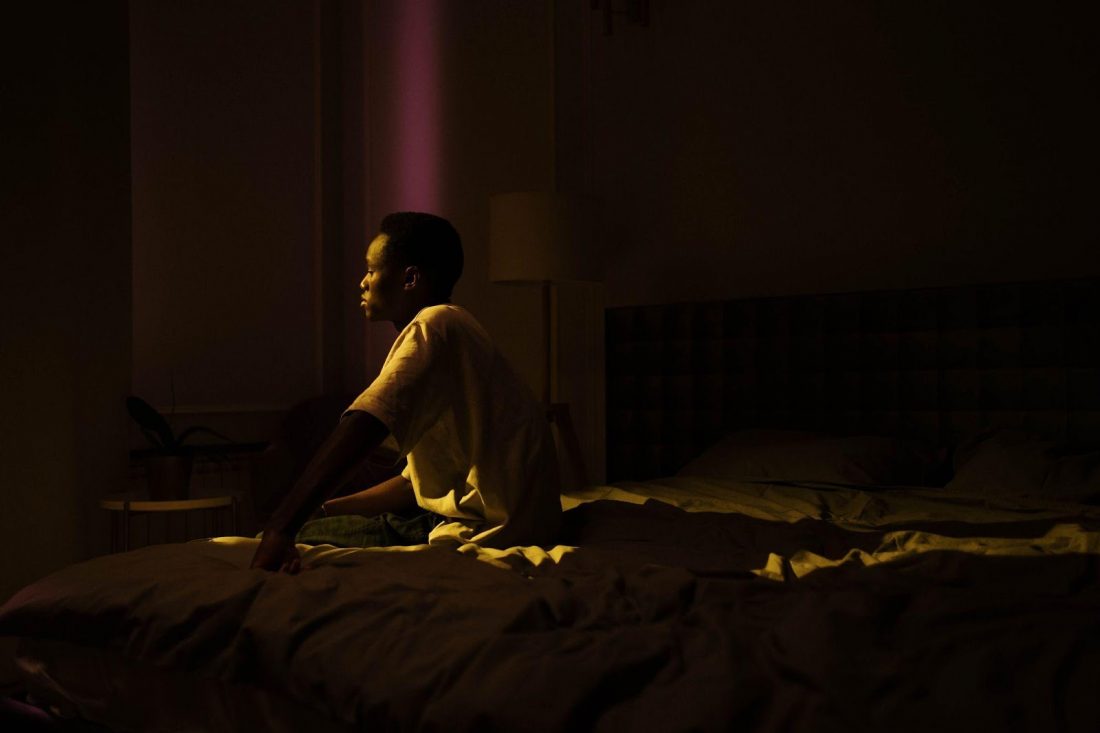Summer can be a very hot and active season, guaranteeing pleasant moments on the beach or by the pool. But it can be really tough at bedtime. With longer, brighter days and high temperatures, your bedtime comfort can be compromised.

Experts estimate that the ideal temperature for sleeping is around 65 degrees Fahrenheit. If you’re spending the summer in a warmer area with no air conditioning, the night can be hellish. And the combination of heat with other bad habits may result in many sleepless nights or even chronic insomnia.
You can’t have any power over the temperature outside. But there are some habits you can try to change this summer so you can sleep better even in the nearly unbearable heat.
Not Being Comfortable
Unless you want to turn your bed into a sauna and sweat all night, summer calls for light pajamas and proper bed sheets and blankets. As the body loses heat through the hands and feet, keep both ends out of the sheet or blanket to help cool the limbs.
Even if you can cool the room temperature with fans or air conditioning, having a good mattress is essential to make sure you’re sleeping in a comfortable position. Consider a mattress made from materials that help keep you cool as you sleep. There are some solutions for hot sleepers, like mattresses with AirFoam, a breathable material that gives a refreshing feeling to the body during sleep.
Eating Close to Bedtime
Devouring an entire pizza washed down with a liter of soda right before bed is the harbinger of a bad night’s sleep, especially on hot summer nights. This is because your body will focus more on digesting food than it will on getting sleep.
Take advantage of the summer temperatures to start a lighter evening routine. Avoid eating a big meal before you go to sleep, and get used to making your dinner at least three hours before bed. Your body wants to be relaxed and not too active when it’s time for rest.
Working Out Late at Night
As the sun takes a long time to set during the summer, it can be tempting to go for a later run. Although exercising is a recommended practice for your health, the heat of the season calls for a slight change in habits: if you exercise just before bed, your body will be too hot and active and will struggle to cool down in bed.
Try scheduling your workouts earlier in the morning before the sun is at its peak. For example, exercising 20 minutes early in the morning helps reset your biological clock and gives you more energy for the rest of the day. At night, avoid physical activity for at least an hour before bedtime, which is when your body should start to slow down.
Drinking Too Much Caffeine and Alcohol
Same as food and working out, avoid consuming caffeine or alcohol too close to bedtime, and be sure to drink both in moderation. The first is a stimulating substance that makes your body too alert. It’s good to remember that caffeine is not only present in the traditional cup of coffee but also in teas, chocolates, and energy drinks.
The case of alcohol is ironic because many believe that it even helps you sleep better. The substance also turns into a stimulant after a few hours and may affect sleep quality, waking many people up in the middle of the night. Alcohol inflames the system, which alerts the body to work hard to calm it.
To avoid unexpected insomnia, drink your last cup of coffee (or tea, or energy drink) four to six hours before bedtime, and limit your alcohol consumption to one to two drinks a day, at least three hours before you go to bed.
Screen Time Before Bed
Watching TV or staring at your phone when you’re already in bed and about to go to sleep stimulates the mind and makes it harder to wind down. This happens because the blue light emanating from these screens tricks the body into thinking it’s daytime when it is not.
You must create and follow the rule of no screens in the bedroom. Avoid the temptation to scroll the news feed or check your private messages on your cell phone when you’re already in bed and at least an hour before going to sleep. In addition to the blue light, the new information you receive at this time can make you stressed and anxious, making it even more difficult to sleep.
Enjoy the Summer Without Fatigue
Summer is a season of intense physical activity when you take advantage of sunny days to travel, walk, hang out with friends, play sports, go to bed later, etc. As warmer weather and drier air can influence the quality of your sleep, and you have little control over these elements, it’s essential to change other habits to avoid sleepless nights. It is also very simple to adopt pajamas made with lighter materials (such as silk) and thin bed sheets. Avoiding overeating, looking at screens in bed, and drinking caffeine or alcohol just before bedtime are healthy practices that you should also consider for the rest of the year.



